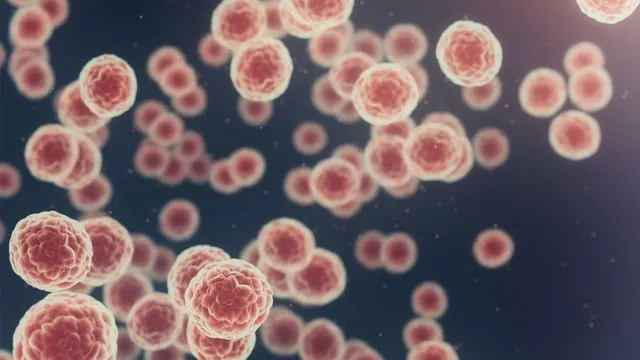
New Study Unveils Hormone's Link to Increased Breast Cancer Risk in Post-Menopausal Women!
2025-04-03
Author: Jia
New Study Unveils Hormone's Link to Increased Breast Cancer Risk in Post-Menopausal Women!
In a groundbreaking study hailed as the largest and most thorough of its kind, researchers have confirmed the significant role of a hormone, prolactin, in elevating breast cancer risk among post-menopausal women. This landmark research not only deepens our understanding of the underlying causes of breast cancer but also has the potential to reshape future strategies for risk assessment and prevention.
Conducted by a team of scientists from The Institute of Cancer Research in London and supported by an international consortium spanning the United Kingdom, the United States, Canada, and Australia, the study pooled valuable data from five major cohort studies within the Biomarkers in Breast Cancer Risk Prediction (B2Risk) alliance. By analyzing a substantial group of 8,279 breast cancer-free post-menopausal women, the researchers aimed to uncover crucial insights about the correlation between hormone levels and breast cancer risk.
The Role of Prolactin in Breast Cancer Risk
At the core of this research was the measurement of plasma prolactin levels, collected from participants at the study's onset. Interestingly, the results illustrated a clear trend: women with prolactin levels below 7.91 ng/mL did not exhibit increased breast cancer risk, while those with levels exceeding 13.15 ng/mL faced nearly a 20% higher likelihood of developing the disease. These findings, published in the journal *Breast Cancer Research*, highlight how hormonal variations can significantly influence health outcomes.
Notably, the study revealed that the risk associated with elevated prolactin levels was most pronounced in women undergoing post-menopausal hormone therapy (PMH), indicating a complex interplay between prolactin and other hormones. The timing of blood sample collection was also critical, with stronger associations observed in samples taken within ten years prior to a cancer diagnosis.
Investigating Additional Risk Factors
Beyond prolactin, the research also explored other prominent risk factors, including body mass index (BMI). The analysis suggested that the relationship between prolactin and breast cancer risk might be influenced by BMI, with a more significant association found among women with lower BMIs. As BMI has known effects on sex hormone levels in post-menopausal women, this finding underscores the importance of a multifaceted approach to understanding breast cancer risk.
Despite these compelling insights, the researchers noted certain limitations, including focusing primarily on post-menopausal women of European ancestry. They recognize the need for further studies to broaden the understanding of how prolactin interacts with various hormones and to explore its potential as a target for breast cancer prevention and treatment.
A Leap Toward Personalized Breast Cancer Prevention
This study marks a significant stride toward personalized breast cancer prevention. Professor Montse Garcia-Closas, a co-author of the study, emphasized how the findings could facilitate identifying specific groups of women who might benefit from heightened screening and risk assessment based on prolactin levels.
Dr. Simon Vincent, Director of Research, Support, and Influencing at Breast Cancer Now, echoed this sentiment, stating that understanding prolactin levels could lead to personalized strategies that ensure earlier detection of breast cancer—a critical factor in successful treatment outcomes.
Breast cancer is a multifaceted disease, influenced by lifestyle, genetic factors, and environmental exposures. Therefore, continuing to unravel the complexities of hormonal impacts on women's health remains vital in the ongoing fight against this disease.
Could Prolactin Testing Revolutionize Breast Cancer Screening?
As researchers delve deeper into the relationship between prolactin and breast cancer, the path seems clearer for potential breakthroughs in screening and prevention strategies. This study not only illuminates the intricacies of breast cancer risk factors but also provides hope for more tailored approaches that could ultimately save lives. Stay tuned as the research community works to unlock further secrets of this hormone and its impact on women's health!


 Brasil (PT)
Brasil (PT)
 Canada (EN)
Canada (EN)
 Chile (ES)
Chile (ES)
 Česko (CS)
Česko (CS)
 대한민국 (KO)
대한민국 (KO)
 España (ES)
España (ES)
 France (FR)
France (FR)
 Hong Kong (EN)
Hong Kong (EN)
 Italia (IT)
Italia (IT)
 日本 (JA)
日本 (JA)
 Magyarország (HU)
Magyarország (HU)
 Norge (NO)
Norge (NO)
 Polska (PL)
Polska (PL)
 Schweiz (DE)
Schweiz (DE)
 Singapore (EN)
Singapore (EN)
 Sverige (SV)
Sverige (SV)
 Suomi (FI)
Suomi (FI)
 Türkiye (TR)
Türkiye (TR)
 الإمارات العربية المتحدة (AR)
الإمارات العربية المتحدة (AR)